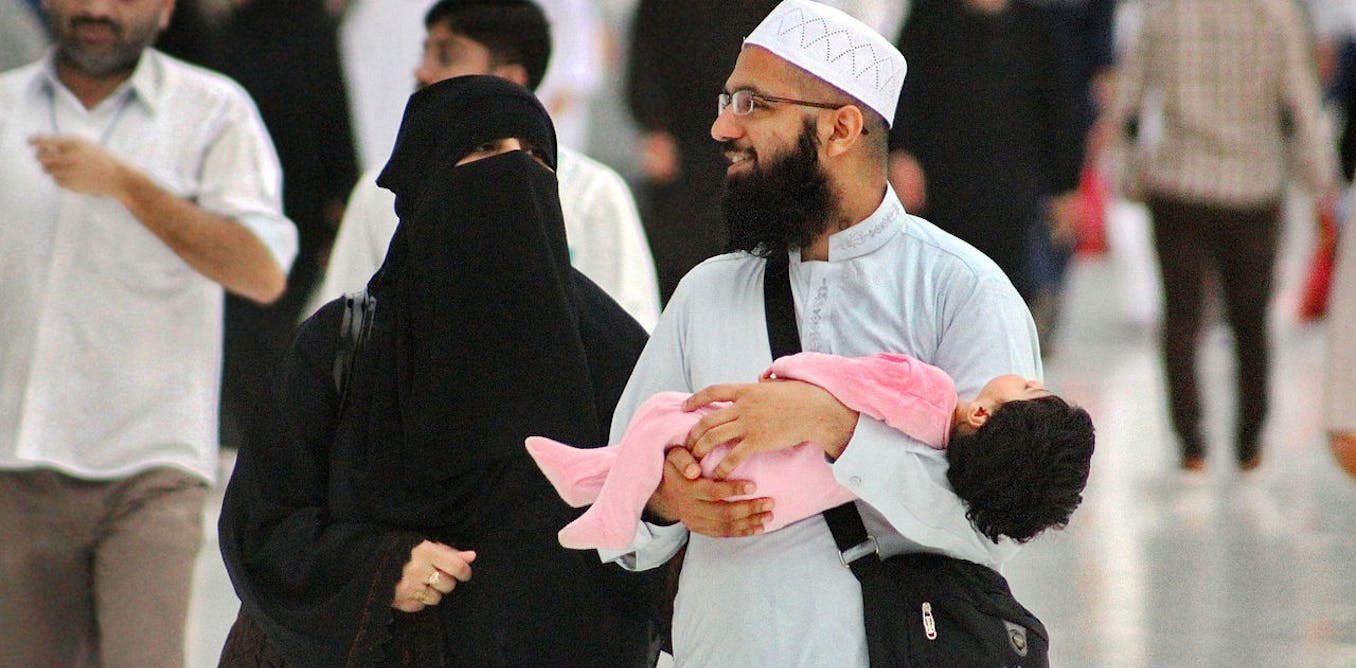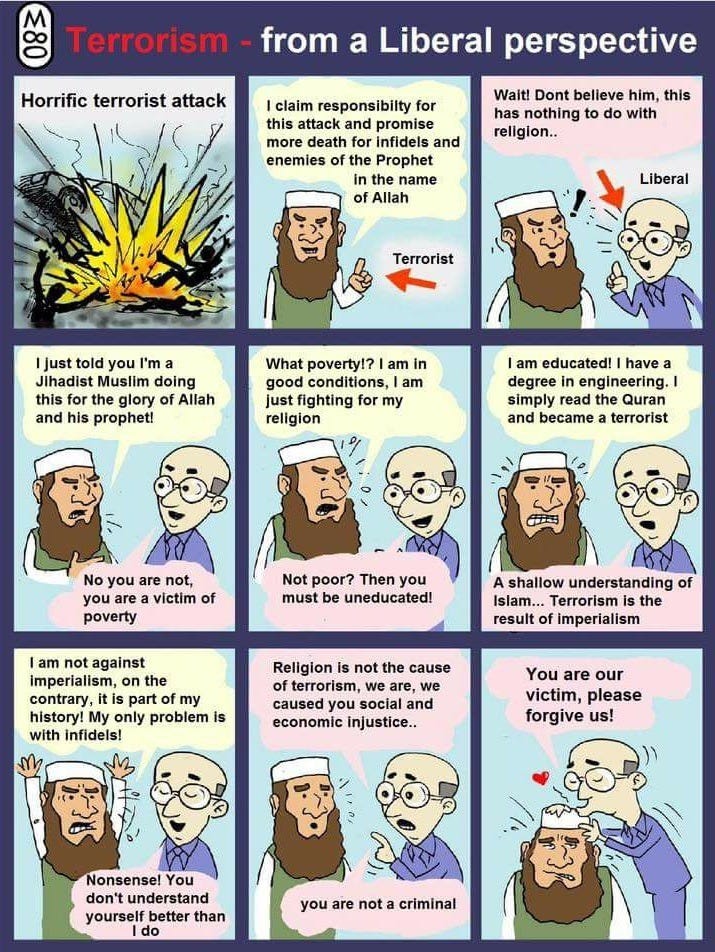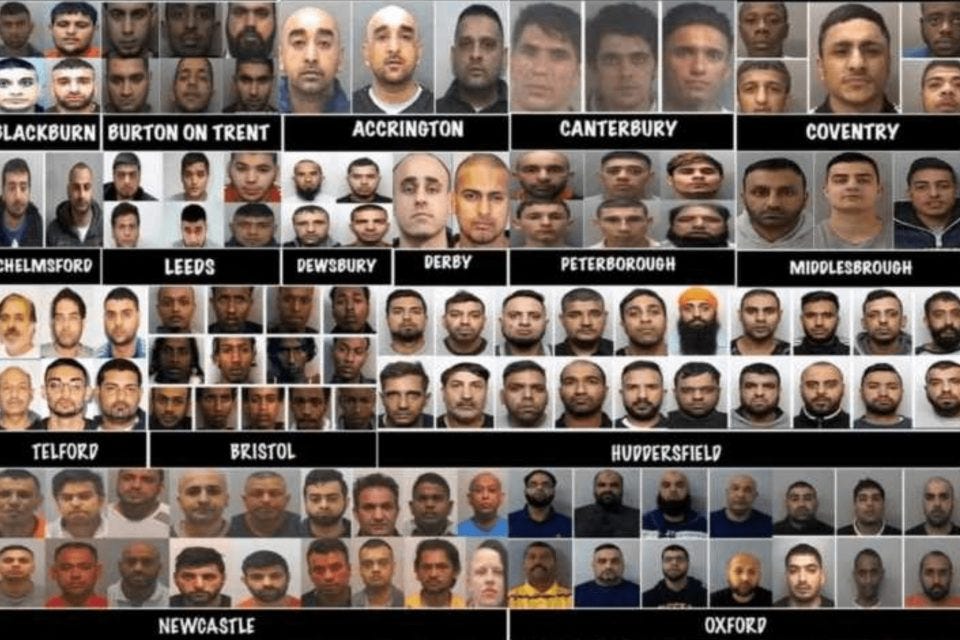As I sit in a quiet café tucked between the historic walls of Split, the rhythms of Croatian life unfold around me. The clink of coffee cups, the murmur of tourists—these moments in Croatia have been my backdrop for the last few weeks.
Everywhere you turn, tourists are capturing renaissance architecture on their phones, purchasing handpicked fruits and homemade olive oils at street markets, and sampling Soparnik from the local food stalls.
Croatia has experienced a remarkable rise as a tourist destination over the past 20 years, though it still trails behind European favourites like Spain, Italy, and France.
As a visitor from northern Europe, one absence stands out to me: the “ninja women” and “bearded men in robes”—more precisely, orthodox Muslims.
Of Croatia's population of around 4.2 million, fewer than 2% are Muslim—a fact that becomes apparent as you walk through the cities. Croatian flags fly proudly, murals celebrate national heroes like Kata Šoljić, Ivan Meštrović, and Luka Modrić, and there is a strong sense of identity rooted in the country’s Roman and Dalmatian heritage. This is a proud, culturally unified nation—quite the contrast to "multicultural" Britain or Sweden.
When people debate multiculturalism, I’ve come to realise they’re rarely talking about a true diversity of cultures. What they’re really discussing is whether Islam has a place in Western society.
For decades, Asians, Jews, and Christian Africans have woven themselves into the cultural fabric of the West. Their contributions, successes, and loyalty have been invaluable and unquestionable.
Islam, however, is different. Unlike other groups, Islam doesn’t tend to adapt to its surroundings—it insists on submission, as the very word suggests. Wherever Islam takes root, the conversation seems to turn to how much the host nation should accommodate it, never the other way around. This is why we find ourselves debating which cartoons can be drawn, what books can be published, and what kind of speech is deemed acceptable.
But it’s not just the religion that shifts the debate—it’s what it does to the liberal mind. It’s often not Muslims themselves who push for the removal of national symbols, like flags from public buildings or singing the national anthems at graduation ceremonies, but rather well-meaning bureaucrats. Afraid that any sign of patriotism may be labelled “racist,” these officials eagerly dismantle their own cultural foundations in the name of inclusion.
The Pattern
While not an exact science, we can see familiar patterns emerge when Islam enters a non-Islamic society. It begins with calls for special treatment under the guise of minority rights. Western societies, wary of appearing discriminatory (a notion never reciprocated in Islamic societies), acquiesce to their demands under the rubric of “liberalism” and believing that asking Muslims to adapt to local norms is some kind of supremacist bigotry.
This leads to the establishment of practices that are out of step with modern Western societies: Sharia courts, forced marriages, niqabs, and male dominance over women. Once such practices gain a foothold, the community expands, drawing in more adherents who take advantage of Western freedom, while actively pursuing its destruction.
Take, for example, the niqab. Proponents argue for the right to wear it, invoking the feminist fight for women’s autonomy. Yet, ironically, the garment itself represents the very oppression feminists once fought against.
As these communities grow, so do parallel societies, where Islamic customs dominate. In these areas, unemployment —especially among women—are disproportionately high, birth rates soar, and crime rates, particularly violent and sexual offences, are significantly higher than national averages. All the while, levels of acculturation remain low, with many residents unable to speak the local language fluently.
Inevitably, debates arise, with the Left blaming the host nation for failing to integrate these communities, citing economic hardship and systemic racism.
We also see foreign, oil-rich Islamic states seizing the opportunity to spread their doctrines by funding mosques and schools that preach Wahhabism, Salafism, or Muslim Brotherhood ideologies. Despite differences, these movements share a common goal: the establishment of a global caliphate as envisioned by Muhammad. This is why Islam, once entrenched, becomes an aggressively proselytising faith.
Inevitably, a terrorist will strike. One or more individuals, shouting “Allahu Akbar,” will detonate a bomb, embark on a killing spree or just target specific individuals for a perceived sleight against the faith (Sir David Amess, Drummer Lee Rigby, cartoonists at Charlie Hebdo etc.) In the aftermath, pundits will gather on television to ask the same tired questions: “How could this happen?”
The responses are as predictable as they are tedious:
“This has nothing to do with Islam!”
“What about colonialism?”
“There are violent verses in the Bible too.”
“The Iraq War!”
“The Crusades!”
“Most Muslims are peaceful, law-abiding citizens.”
Yet no one seems to listen to the perpetrators themselves, who explain their motives in crystal-clear terms, only for some commentator to dismiss them as misguided. It must be frustrating for the Jihadists to explicitly advertise their motives ad nauseam, only for a James O’Brien type to say that they are wrong and the fault sits squarely with the Western society.
Cultural erosion
It’s a myth to think that multiculturalism can thrive without conflict. Shared beliefs, values, customs, and traditions are what bind societies together. When a divergent culture, particularly one as uncompromising as Islam, enters the picture, the native culture is inevitably diluted. It’s a zero-sum game, one which no democratic society has ever voted for.
Islam wasn’t introduced to Western societies through a public mandate but by bureaucrats and policymakers acting against the will of the people. No political party has campaigned on the promise of building more mosques, introducing Islamic norms like halal food in schools, or allowing the call to prayer to echo across public spaces. Any politician making such promises would be finished overnight. Yet, without a single vote cast, here we are.
As this transformation takes place, native citizens begin to feel increasingly alienated in their own countries. Their anger, dismissed as bigotry, grows unchecked. But suppressed frustration doesn’t disappear—it erupts. Grassroots movements emerge, advocating for tighter immigration policies, the preservation of national values, and zero tolerance for crimes previously unheard of in their lands.
This is where the liberal establishment strikes back, accusing these movements of far-right extremism without ever engaging with their legitimate concerns. Labelling critics of Islamic practices as “racist”, “far right” and “fascist” becomes an easy way to silence dissent, avoiding the need for real debate.
This is how Keir Starmer, who remained deaf and dumb when pro-Hamas, antisemitic protests were taking place on a weekly basis across every major city in England for almost a year, suddenly burst into action when Britons took to the streets to voice their grievances, and castigated them as “far-right thugs”:
Celebrities, living in gated communities where they’ll never need to be inconvenienced with the plight of ordinary people, spread vacuous messages on social media and TV studios about how “the same people who are raising fears about Muslims were raising fears about Irish or Jewish people in the past” and how we should sing “Don’t Look Back in Anger” in response to terrorism, to the delight of their social media followers and publicists.
The fundamentalist Muslims, emboldened by the carte blanche offered them by the so called “elites”, push the envelope further and further.
This is why Islam, once established, is an aggressively proselytising faith and believers become ever more confident in expressing their actual goals, as we saw recently in Canada:
This is the reality Western societies face when Islam asserts itself within their borders. It’s a pattern of cultural erosion and denial, repeated time and time again.
The price we pay
In Britain, it is estimated that over 19, 000 girls - some as young as 11 - have been systematically and continuously gang raped by predominantly Muslim men of South Asian origins (primarily Bangladesh and Pakistan), in practically every borough of England, from Tyne & Wear to Cornwall.
In any sane society, the gang rape and abuse of young girls should be the only focus of every public institution and moral citizen from the moment they wake up until it is eradicated. Testimonies of victims who have come forth conclusively establishes how their oppressors appealed to Islamic notion of the believer’s right over non-believers (listen to the heart-wrenching experiences of one such survivor here).
Yet, obscenely, British police, politicians and social care workers actively worked against the victims, suppressing and silencing them, for fear of stoking racial and religious tension.
That is the price we paid for yielding to Islam. The single greatest perversion, committed at an industrial scale, of some of the most vulnerable people in our society was (and is) allowed to carry on, for the fear of offending the sensitivities of “the Muslim community”. Young girls, predominantly from a poor, working class background, allowed to be abused worse than cattle, as long as we are not seen as "Islamophobic”, that perverse term.
The consequences of accommodating a culture that does not reciprocate respect for the host nation's values are clear. What begins as well-meaning tolerance quickly devolves into cultural erosion and societal division. The price we pay for ignoring these realities grows steeper with each passing day.
The end?
History has shown us time and again that societies that lose sight of their own values inevitably falter. If we wish to avoid the mistakes of past civilisations, we must first understand what is at stake in the present.
The fabric of Western society was woven through centuries of struggle, sacrifice, and intellectual growth. It has thrived because of its values of freedom, tolerance, and individual rights—principles that many of us take for granted today. But these values are not invulnerable; they can be eroded, not just by external forces but by our own failure to defend them. The growing reluctance to question ideologies that challenge these foundational principles is a sign of how far we've drifted from the confidence that once defined the West.
The choice is now before us: to either protect what generations have built, or to watch it unravel in the name of misplaced tolerance. True progress isn't about abandoning the ideals that have brought us this far but about ensuring they continue to thrive in the face of new challenges. If we don’t, we may soon find ourselves looking back, wondering how a culture that gave the world so much, allowed itself to lose so much in return.
As Western societies continue to grapple with the challenges of Islam, one question remains: How far can we bend our values before they break?







